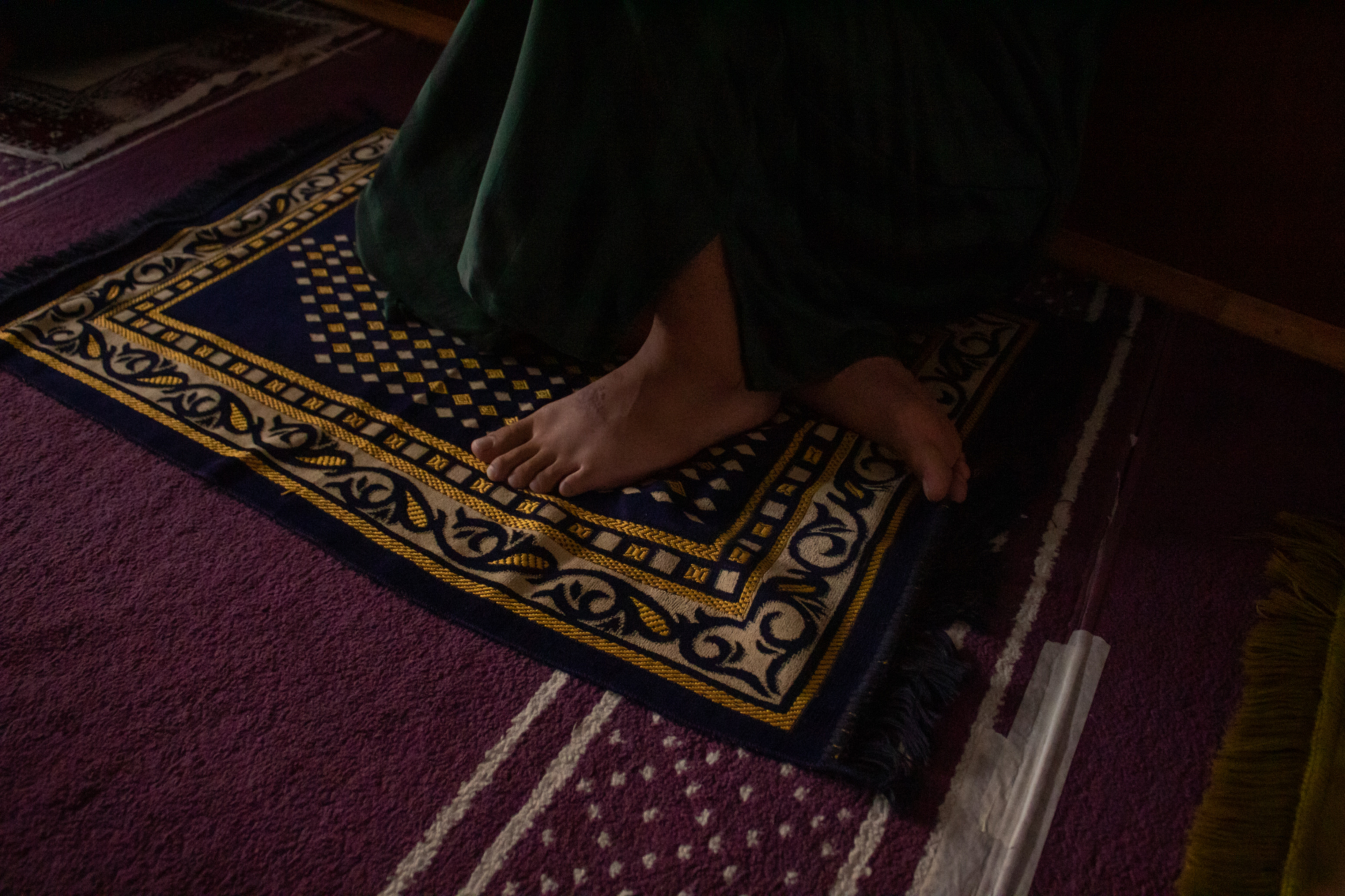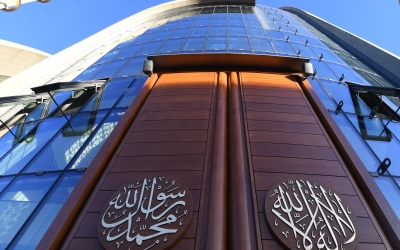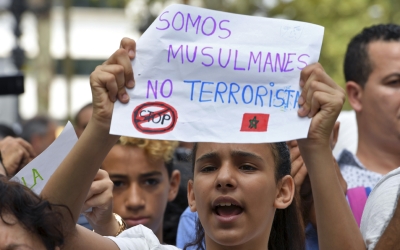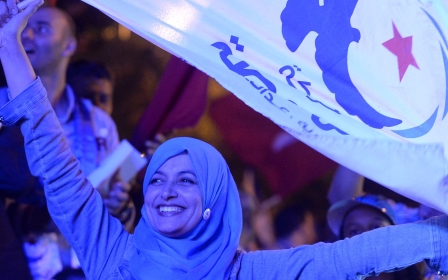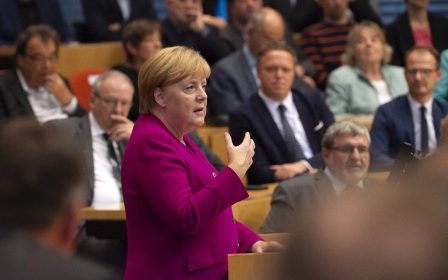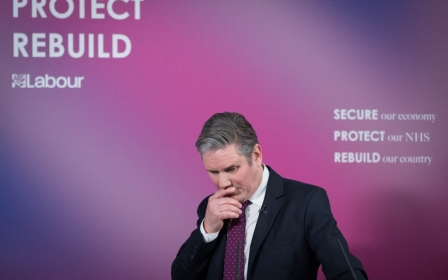Spain: Wave of Islamophobic hate crimes sweeps south of the country
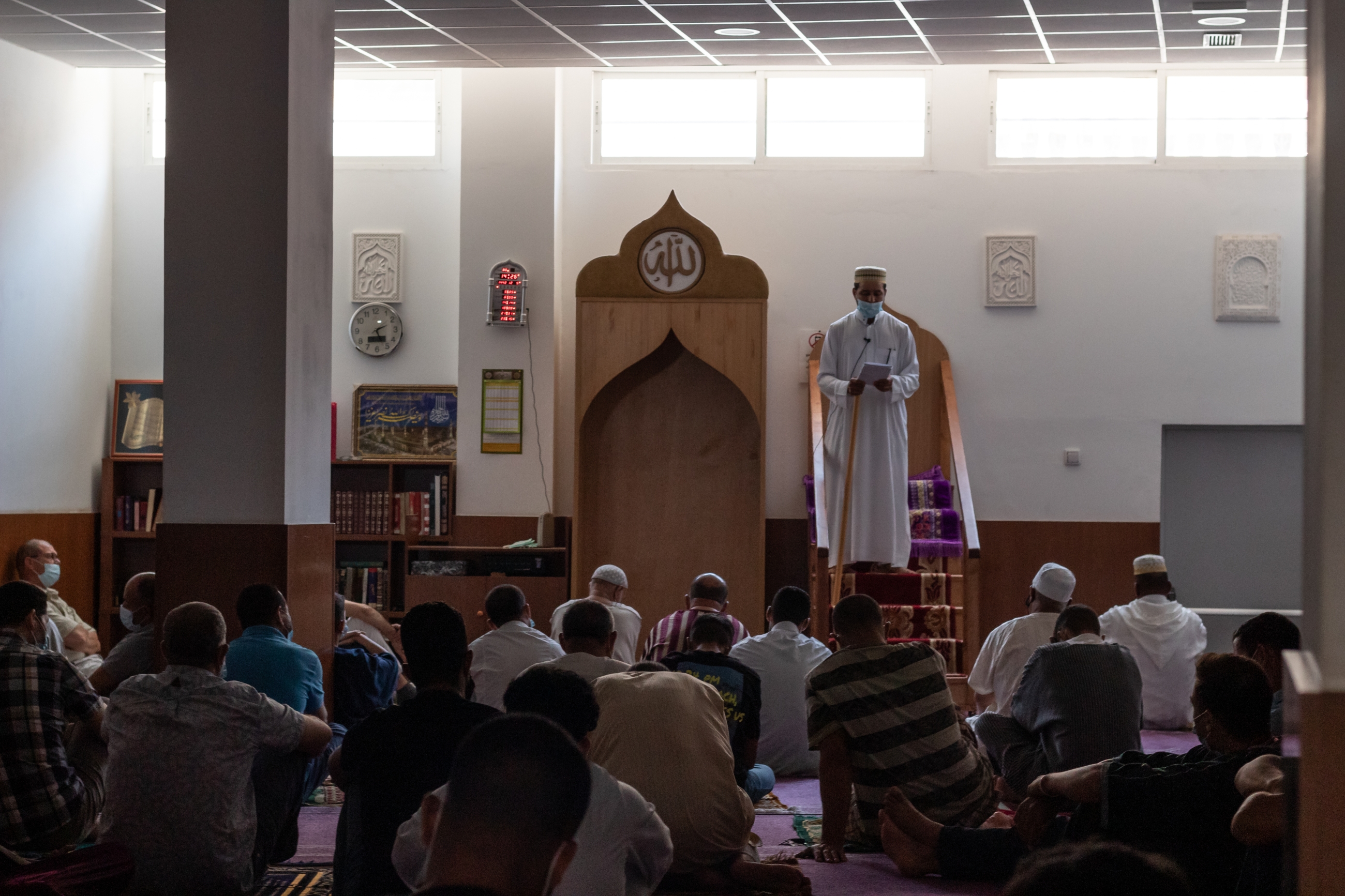
"The doors of the mosque are open to everyone," Sufiane* says, warmly. A defiant and welcoming attitude for a man who, just a week earlier, had been left in tears after the mosque he attends in Cabezo de Torres, in Murcia, southeast Spain, was the target of an Islamophobic hate crime.
In the early hours of 7 July, local worshippers headed to the Ibn Arabi mosque for their morning prayer, to be greeted by the gruesome sight of a decapitated pig’s head, with a knife still plunged into it, at the doorstep. On the walls they found messages reading "No to Islam" and "Stop the invasion," and a large Spanish flag bearing the statement: "Spain's sovereignty is non-negotiable".
"I was really shocked, I couldn't imagine that hatred could reach such extremes," says Sabah Yacoubi, president of the Association of Moroccan Immigrant Workers in Murcia and one of the first to sound the alarm on the attack.
"I've lived in Murcia for 22 years, and there have been very few cases [of Islamophobic hate], but I don't understand what's been going on lately. We have to stop this or the situation is going to worsen."
New MEE newsletter: Jerusalem Dispatch
Sign up to get the latest insights and analysis on Israel-Palestine, alongside Turkey Unpacked and other MEE newsletters
There is cause for concern for Yacoubi and her fellow Muslim residents in Murcia, who form around 90,000 of the 1.5 million people in the region. The attack on the mosque in Cabezo de Torres is the latest in a series of Islamophobic and xenophobic attacks that have swept Murcia over the past month.
In early June, a man beat his 22-year-old Moroccan coworker, Momoun Koutaibi, with an iron bar, fracturing his skull and leaving him in a coma. When the manager fired the attacker, he told him: "The moro [a racial slur used to refer to Arabs and North Africans] is a better worker than you." Koutaibi remains in hospital, in a critical condition.
A week later, Younes Bilal, a 37-year-old Moroccan, was sitting at a cafe with friends when an ex-military officer targeted them with racial verbal abuse and insulted the waitress for serving them. When Bilal confronted the man and asked him to respect Muslims and the waitress, the former officer left the scene, returned with a gun and shot Bilal three times in the chest at point-blank range, killing him, as he shouted: "You fucking moro."
Days later, a Moroccan agriculture worker was severely beaten by his employer for asking to be paid the salary he was owed. The man, who had worked 51 days since April without pay, was owed over €5,000 ($5,900). When he confronted his boss, he was simply told: "We're not going to pay you, you fucking moro."
In that same week, an Ecuadorian woman was stabbed as she was waiting in line at a local food bank, with the suspect yelling racial slurs and claiming prior to the attack "they're stealing our food".
In late June, locals in the city of Lorca protested against the planned opening of a mosque in the neighbourhood of Apolonia. In February, the mosque in the town of San Javier was set ablaze and defaced with Islamophobic graffiti.
Rise of the far right
In recent years, the far-right party Vox has emerged as a strong political force in Spain, and in Murcia in particular. In the 2019 general election, Vox won 28 percent of votes in Murcia - the highest-polling party - and it now rules the region in a coalition government, alongside the conservative People's Party and centre-right Ciudadanos.
Many believe the surge in Islamophobic hate crimes in Murcia can be attributed to the influence Vox now holds in the region.
"These attacks are the reflection of a growing normalisation of xenophobic and racist discourse, of attacks towards specific groups - in this case people of Arab origin," says Pedro Rojo, a prominent Arabist and president of Al-Fanar Foundation for Arab Knowledge.
"It is undoubtedly the result of hate speech that is normalising and making these attacks seem justifiable."
Since emerging onto the national political scene, the far-right party has been strongly criticised for its hardline stance on immigration and Islam, with Twitter blocking its account in January for "inciting hate" against Muslims following the launch of an online campaign under the hashtag #stopislamization.
"This has created a breeding ground exploited by Vox's demagogic discourse, as well as other parties, which leads a handful of people to believe that it is legitimate to attack and even murder people," Rojo says.
"It's much easier to accept a populist discourse against a defenceless part of our society than to really question our system."
Indeed, as Rojo points out, fingers cannot be pointed only at Vox, as the problem is deep rooted.
"Vox is not the problem, the system is," echoes Spanish-Egyptian activist Aurora Ali, a member of the Muslim Association for Human Rights. "Before Vox came into power, the discourse was propagated by right-wing, centre and progressive parties. The dehumanisation has always been there. The discourse is not new, only the faces have changed."
Dodgy data
The recent attacks in Murcia are part of a larger wave of Islamophobia that has swept Spain in recent years, with many pointing to the 2017 terror attacks in Barcelona as a contributing factor.
In 2017, the Interior Ministry recorded 103 instances of Islamophobic hate, a rise of 120 percent on the previous year.
'Anti-Muslim hatred is not really recognised in Spain'
- Aurora Ali of the Muslim Association for Human Rights
Reliable data on Islamophobic crimes is hard to come by, with the government and NGOs producing varying results. In 2017, the Citizen Platform against Islamophobia registered more than five times the number of Islamophobic crimes reported by the government, citing 546 cases.
"Anti-Muslim hatred is not really recognised in Spain," says Ali. "The state understands that we are attacked due to 'religious intolerance' or 'racism and xenophobia,' but never admits its role through its securitisation or counter-terrorism policies that target Muslims and Arabs. Through these policies, Muslims and Arabs have been systematically stigmatised, criminalised and dehumanised."
Moroccans make up the second-largest migrant group in the country and are victim to the highest rate of hate crimes among foreigners in Spain, suffering 7.8 percent of attacks, according to a 2019 government report.
Additionally, a study conducted by the University of Valencia also found that residents of Maghreb descent are 7.5 times more likely to be stopped by police than their white Spanish counterparts.
"If we dehumanise a minority on a daily basis through mainstream media, through political spaces, through state policies, through academia and education, what are we telling the general public? Why should they act differently and rehumanise us?" Ali says.
To complicate matters further, Spain's Ministry of Interior has failed to categorise Islamophobia as a specific hate crime, with Interior Minister Fernando Grande-Marlaska deeming the classification "unnecessary".
"Without data, there's no problem to address, and without a problem there's no need for a solution," says Ali. "So the attacks will always be deemed 'isolated cases', since we are not even recognised in the victimology tables. It gets hidden."
Sidelined and neglected
Calls from the Muslim community, NGOs and organisations for a stronger political commitment to tackle Spain's rising Islamophobia have fallen on deaf ears.
"There has been no interest in debating what is required to achieve a more inclusive and less racist society in the region of Murcia - or Spain as a whole - because it is a debate that no political force is willing to open," Rojo says.
'It is a debate that no political force is willing to open... it's not electorally profitable'
- Pedro Rojo, president of Al-Fanar Foundation for Arab Knowledge
"There is no courage to put that on the table, because it's not electorally profitable for them."
The political disenfranchisement of the Muslim community has reduced it to a tier of neglect that few are interested in changing, he argues.
"We cannot continue to act as if Spain were not the plurality it is today, without taking that diversity into account, and without working so that diversity has active roles and in all sectors of society."
* Interviewee's real name changed on request
This article is available in French on Middle East Eye French edition.
Middle East Eye delivers independent and unrivalled coverage and analysis of the Middle East, North Africa and beyond. To learn more about republishing this content and the associated fees, please fill out this form. More about MEE can be found here.


